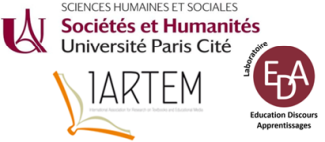This presentation explores the dynamics of the relationship between textbook publishing houses in the former German Democratic Republic (GDR) and the Federal Republic of Germany (FRG). The study, in its nascent stage, aims to elucidate the factors that facilitated this interplay. It sheds light on this connection, with a specific focus on the post-1960s era. The research, currently in its early phases, employs a comprehensive analysis, not only reviewing relevant literature from both East and West Germany but also scrutinizing internal correspondences and reports sourced from a state-owned textbook publisher in East Germany.
In the GDR, the state retained ownership of textbook production, with exclusive publishing responsibilities entrusted to Volks und Wissen Verlag. Established in 1946, this publishing entity was specifically designated for textbook production, serving as the sole authority in this domain throughout the existence of the GDR. Furthermore, it housed an independent research department, engaging in scholarly inquiries on educational materials through close collaborations with universities and pedagogical colleges. Despite being among the largest publishers in the GDR, Volk und Wissen Verlag has received limited attention in historical research, particularly with a focus on the publisher itself. Exceptions to this limited research landscape are found in the works of Links (2013) and Rau (2023), which serve as notable references, providing valuable insights into the historical overview of this publishing house.
Volk und Wissen Verlag formally prioritized its affiliations with publishing houses in other socialist nations. Simultaneously, the strategic exportation of educational materials to the West German market became a crucial source of revenue for Volk und Wissen Verlag, as pointed out by Rau (2023), despite political and economic disparities between the two regions. Internal correspondences and reports housed in the Federal Archives in Germany indicate how the publishing house actively cultivated connections with counterparts in West Germany, seizing opportunities such as book fairs in Frankfurt and Leipzig, as well as the educational fair, didacta. Textbook publishers in both East and West occasionally exchanged educational materials from their own publications.
Moreover, licenses for the publication of specific educational materials from Volk und Wissen Verlag were granted to West German publishing houses, including Harri Deutsch, Aulis, Klett, and Cornelsen. Many of the publications, for which copyright was transferred from the publishing house, were educational materials for the natural sciences. The reading primer from Volk und Wissen Verlag also gained recognition in West Germany, particularly for its aesthetic book design. In the 1980s, Volk und Wissen Verlag even developed educational materials suitable for publication in the West due to a shortage of titles appropriate for exportation to this region.
Following the collapse of East Germany, Volks und Wissen Verlag was integrated into the major textbook publishing house Cornelsen as one of its divisions in 1991 and continues to publish textbooks for the new federal states.
This research contributes to the understanding of the historical interplay within the publishing industry in a divided Germany. Furthermore, the study posits the potential for educational materials to serve as a bridge, fostering connections even within a society marked by divisions.
References
Links, Christoph (2013), Das Schicksal der DDR-Verlage : Die Privatisierung und ihre Konsequenzen. Berlin : Ch. Links Verlag
Rau, Christian (2023), "Schulbuchverlag Volk und Wissen", Links, Christoph / Lokatis, Siegfried / Saur, Klaus G.(Hrsg.), Geschichte des deutschen Buchhandels im 19. und 20. Jahrhundert. Band 5: Deutsche Demokratische Republik. Teil 2: Verlage 2. Berlin/Boston : De Gruyter, pp.71-89

 PDF version
PDF version
